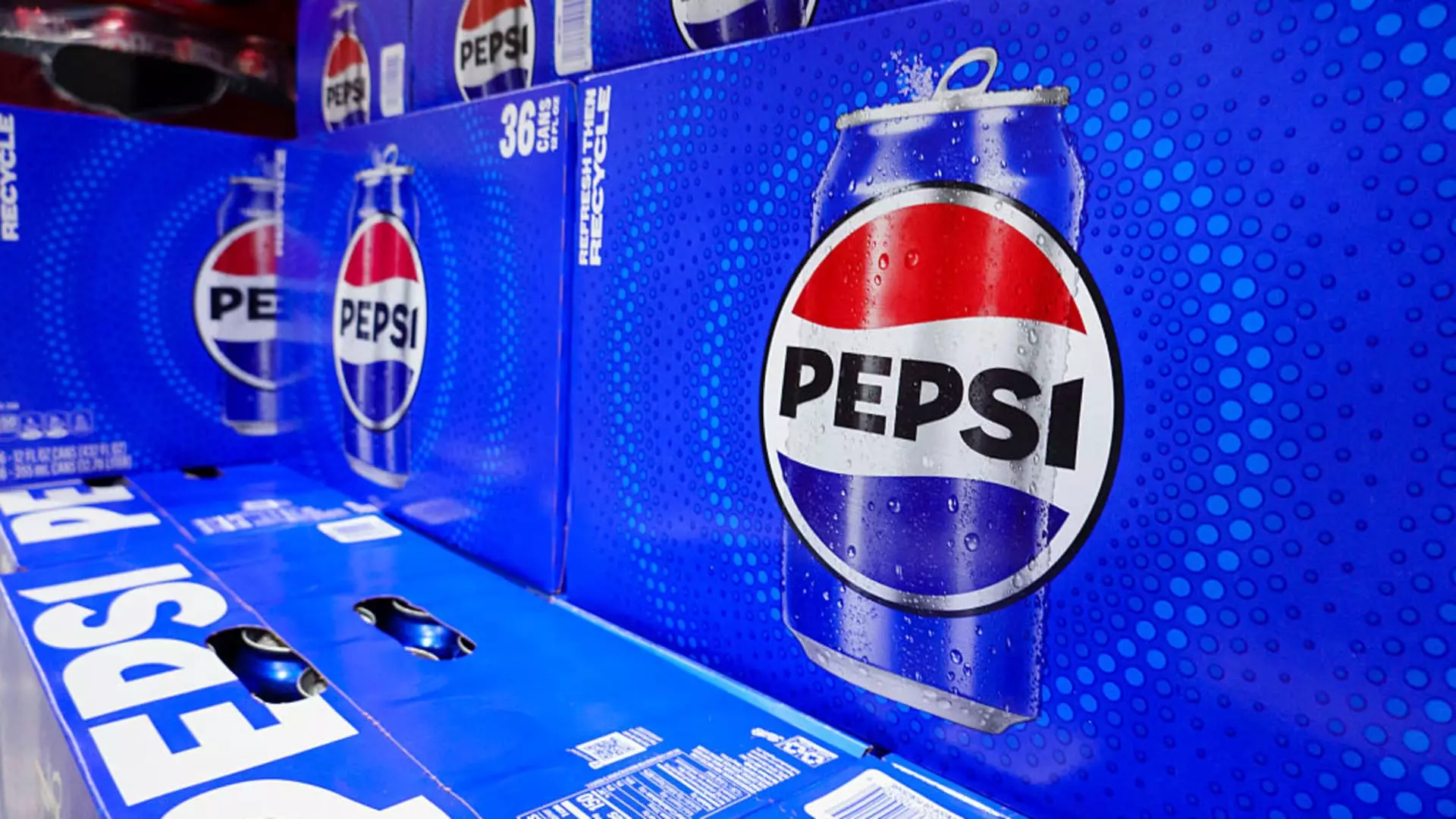PepsiCo’s recent financial report, at first glance, appears to tell a story of resilience and steady growth. The company announced that its earnings per share exceeded analyst expectations and that revenue slightly outpaced forecasts. But beneath this surface lies a troubling reality: a business grappling with declining demand and shrinking market share in its core North American markets. While the stock’s modest increase suggests investor optimism, this rebound masks fundamental vulnerabilities that expose PepsiCo’s superficial success.
The reported 1% increase in net sales and 2.1% organic revenue growth seem encouraging—until you realize that volume sells, not just revenue figures. The fact that worldwide volume declined by 1.5% for food and remained flat for drinks demonstrates a stagnating consumer base with waning interest. This stagnant volume, against the backdrop of rising prices alone, cannot sustain long-term growth. It only masks a shrinking customer base—a stark indicator that PepsiCo is fighting a losing battle amid changing consumer preferences and an over-saturated market.
The Sliding Tide of Domestic Demand
North America, traditionally PepsiCo’s cash cow, is revealing signs of fatigue. A 1% volume decline in the food division—home to Frito-Lay and Quaker—indicates a market that is less receptive to traditional snack foods and staples. Even more concerning is the 2% dip in beverage volume, a segment historically vital for the company’s revenue streams. Despite the CEO’s optimistic tone and the reported double-digit growth for Pepsi Zero Sugar, these numbers only hint at a market shifting away from sugary sodas and similar offerings.
The beverage industry’s trajectory appears to be veering sharply toward health-conscious, low-sugar, and alternative options. PepsiCo’s efforts to capitalize on protein trends and multicultural products like Siete Foods and Sabra are indicative of a reactive strategy rather than proactive market leadership. Rather than innovating boldly, the company appears to be scrambling to adapt, trying to stretch its traditional assets into new areas out of necessity rather than conviction.
Cost-Cutting Measures: A Symptom of Malaise
PepsiCo’s decision to close manufacturing plants and tighten logistics illustrates an urgent need to sustain profits in a shrinking demand environment. These cost-cutting measures are symptomatic of a business trying to paper over deeper issues—chiefly, declining core demand and an inability to innovate at the speed required by modern consumers. While efficiency improvements may boost margins temporarily, they do little to address the fundamental flaw: a brand that is losing relevance among its target demographic.
The company’s efforts to optimize marketing spending and eliminate overlaps within its divisions reveal a defensive posture. Instead of boldly reinvesting in brand reinvention, PepsiCo appears to be trimming fat—possibly at the expense of innovation and growth opportunities. This approach, while necessary in the short term, risks entrenching a cycle of complacency where superficial earnings improvements hide deeper structural challenges.
The Fragile Outlook Amid Economic Uncertainty
Although PepsiCo maintains a cautious optimism for the full year, citing expected low-single-digit organic growth and flat earnings, these forecasts seem increasingly optimistic given contemporary market trends. The company’s previous warnings about tariffs, economic volatility, and cautious consumers underscore a fragile environment where even slight shifts could derail its modest outlook.
PepsiCo’s narrative of resilience is almost detached from the reality faced by consumers, who are increasingly prioritizing health, environmental sustainability, and authentic engagement over brand loyalty to traditional processed foods. The fact that the company is still banking on minimal growth and maintaining the status quo highlights a reluctance—perhaps an inability—to truly transform in time to meet these evolving demands. In the grand scheme, PepsiCo’s message seems to be one of survival rather than thriving in a new era.
Final Reflection: A Company on the Brink of Stagnation
PepsiCo’s recent earnings report paints a picture of a corporation trying to hold onto past glory amidst a rapidly changing landscape. Beneath the surface of steady revenue figures and modest stock price gains, it is clear that the company faces significant structural challenges—shifts in consumer behavior, increasing health consciousness, and a declining appetite for traditional snacks and sodas.
Rather than adopting bold, innovative strategies that address these fundamental changes, PepsiCo appears to be limping along with cost cuts and incremental product tweaks. This approach may buy some short-term stability, but it does little to secure long-term growth or relevance. If PepsiCo refuses to confront its core issues with genuine innovation and a willingness to reinvent itself, it risks becoming a relic of a bygone era, clinging to superficial metrics rather than embracing the future.



Leave a Reply